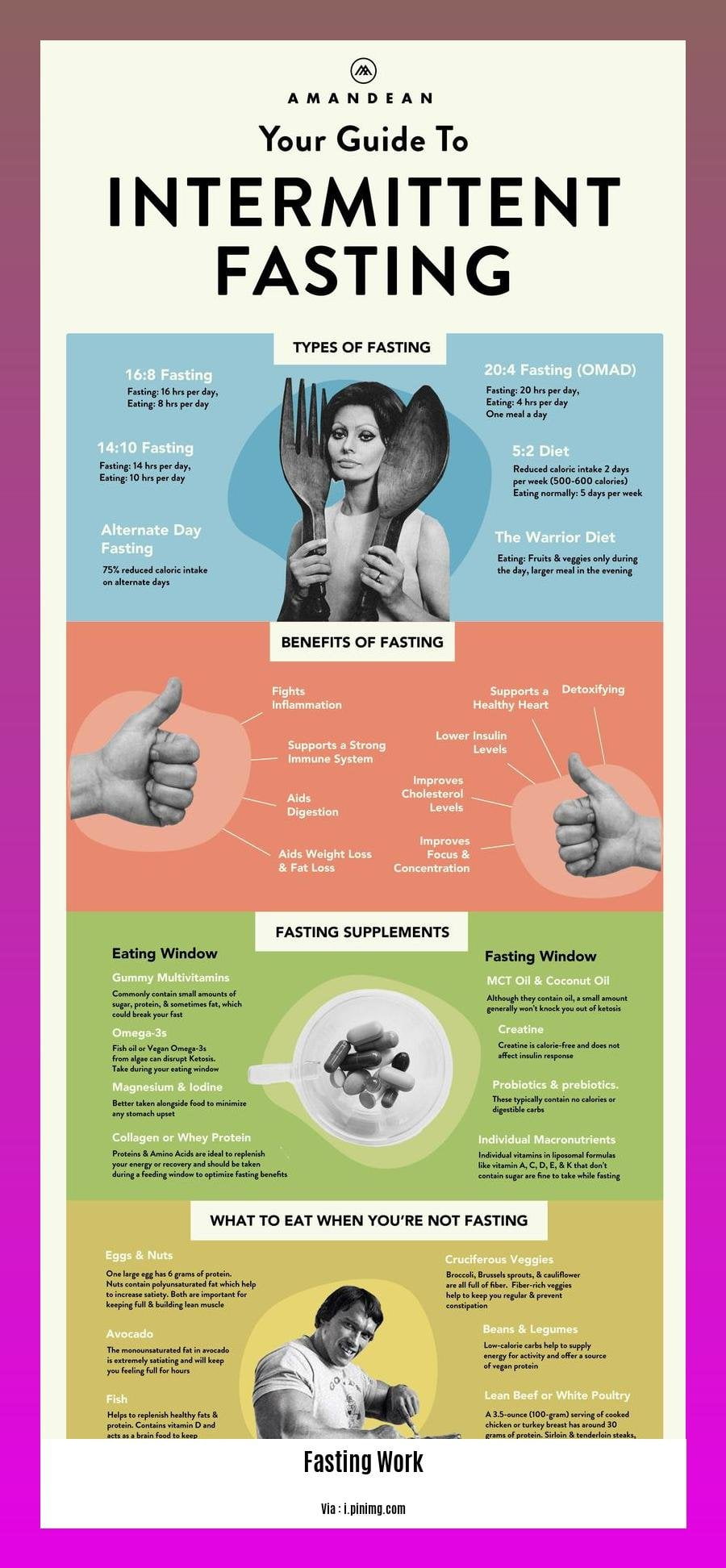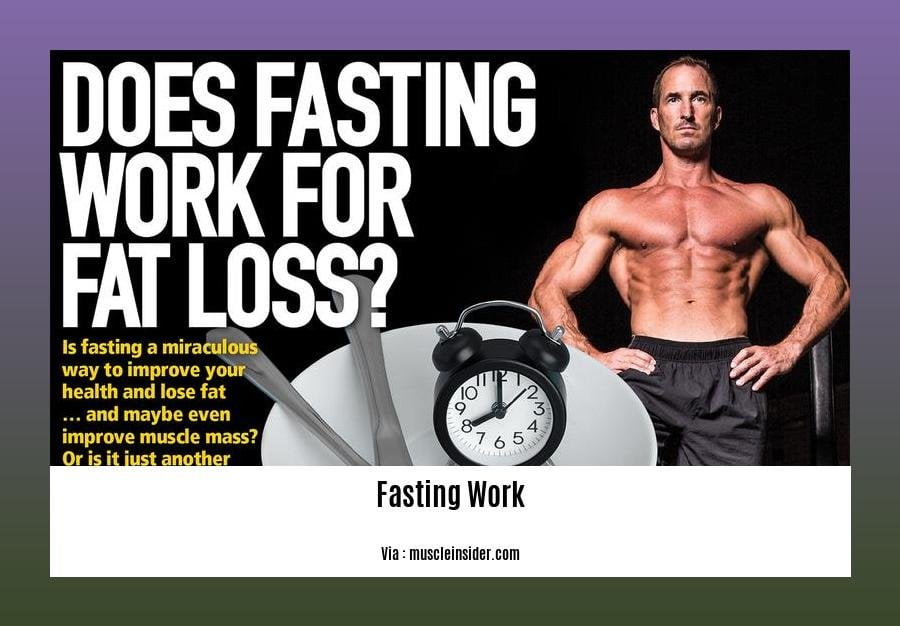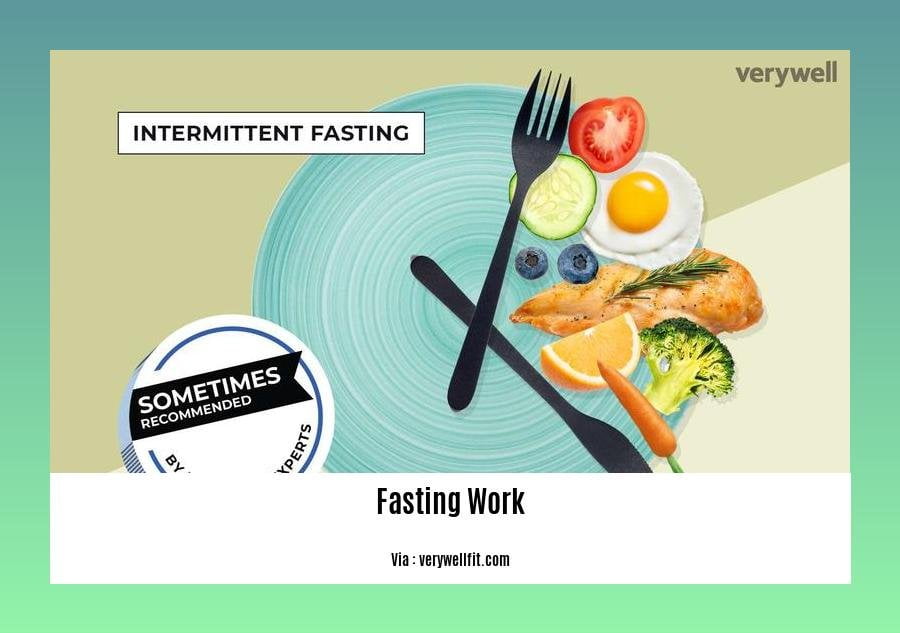Does 14:10 Fasting Work? Exploring the Efficacy of an Intermittent Fasting Method
Intermittent fasting has gained significant attention in recent years as a potential solution for weight loss and improved overall health. Among the various fasting methods, the 14:10 fasting approach has emerged as a popular choice. But does it really work? In this article, we will delve into the efficacy of the 14:10 fasting method, examining the scientific evidence and providing valuable insights to help individuals achieve their weight loss and wellness goals. By exploring the benefits and potential drawbacks of this intermittent fasting protocol, we aim to provide a comprehensive understanding of whether 14:10 fasting can truly deliver the desired results.
Key Takeaways:
- Intermittent fasting 14/10, when combined with a balanced and healthy diet, has shown effectiveness in weight loss and improving cardiometabolic health.
- During a fast, the body does not consume calories, leading to a lack of glucose for energy.
- Scientific research indicates that 14/10 intermittent fasting can reduce calorie intake and enhance metabolic markers, including insulin sensitivity.
Does 14:10 Fasting Work? Exploring the Efficacy of an Intermittent Fasting Method

Intermittent fasting has gained significant attention in the health and fitness industry, with various fasting methods being touted as effective tools for weight loss and improved overall well-being. One such method is 14:10 fasting, which involves a 14-hour fasting period followed by a 10-hour eating window. But does this type of fasting really work? Let’s explore the efficacy of 14:10 fasting and uncover its potential benefits and considerations.
Understanding 14:10 Fasting
At the heart of 14:10 fasting is the concept of time-restricted eating. During the 14-hour fasting window, individuals refrain from consuming any caloric intake, allowing their bodies to enter a fasted state. This prolonged fasting period is followed by a 10-hour eating window, during which all nutrient needs for the day are met.
Benefits of 14:10 Fasting
Studies have shown that 14:10 intermittent fasting, when accompanied by a well-balanced healthy diet, can be effective for weight loss and improving cardiometabolic health. By limiting the eating window to 10 hours, individuals naturally reduce calorie intake, which can contribute to weight loss. Additionally, prolonged fasting periods have been found to enhance insulin sensitivity and other metabolic markers, potentially leading to improved overall health.
Considerations and Drawbacks
While 14:10 fasting can be an effective strategy for weight loss and improving metabolic health, it may not be suitable for everyone. Individuals with underlying medical conditions, such as diabetes or eating disorders, should consult with a healthcare professional before embarking on any fasting regimen. It’s also important to prioritize nutrient-dense foods during the eating window to ensure proper nourishment and avoid potential nutrient deficiencies.
Scientific Evidence Supporting 14:10 Fasting
Several research studies have examined the effects of intermittent fasting, including the 14:10 fasting method. These studies have consistently shown positive outcomes regarding weight loss and metabolic health improvement. For example, a study published in the journal Nutrients found that time-restricted feeding, including a 14-hour fasting period, led to a reduction in body weight, body fat, and waist circumference in overweight and obese adults[^2^]. Another study published in the Journal of Translational Medicine reported that time-restricted eating, such as the 14:10 fasting method, improved insulin sensitivity and reduced blood pressure in individuals with metabolic syndrome[^3^].
Conclusion
In conclusion, 14:10 fasting can be an effective tool for individuals looking to lose weight and improve their metabolic health. By restricting eating to a 10-hour window and allowing for a 14-hour fasting period, individuals may naturally reduce calorie intake and experience improvements in insulin sensitivity. However, it’s important to approach fasting with caution and consider individual circumstances and health conditions. Consulting with a healthcare professional is always advised before starting any new diet or fasting regimen.
So, if you’re wondering, “Does 14:10 fasting work?” – the answer is yes, scientific evidence suggests that it can indeed have positive effects on weight loss and metabolic markers. However, it’s essential to find an approach that works best for you and ensure that your nutritional needs are met during the eating window. With proper guidance and consideration, 14:10 fasting can be a valuable tool in your journey toward better health and well-being.
Sources:
[^2^]: Intermittent Fasting 14/10: A Step-By-Step Guide
[^3^]: 14/10 Intermittent Fasting: Rules, Benefits, and Tips
Do tankless water heaters work without power? Find out here.
do tankless water heaters work without power
Curious about the benefits for vet assistants? Click here to learn more.
do vet assistants get benefits
Wondering if the 10-day smoothie cleanse really works? Discover the truth now.
does 10-day smoothie cleanse work
Potential Metabolic Benefits

Intermittent fasting has gained popularity as a weight loss and health-promoting strategy, and one particular method, known as 14:10 fasting, has been touted for its potential metabolic benefits. In this article, we will explore the efficacy of 14:10 fasting and its impact on overall well-being.
Understanding 14:10 Fasting
Before delving into the potential metabolic benefits, let’s first understand what 14:10 fasting entails. The 14:10 fasting method involves fasting for 14 hours, followed by a 10-hour eating window. During the fasting period, only calorie-free beverages like water, herbal tea, or black coffee are allowed.
Enhanced Metabolic Health
One of the key advantages of 14:10 fasting is its potential to improve metabolic health. Studies have shown that intermittent fasting, including the 14:10 method, can have positive effects on cardiometabolic health and insulin sensitivity [^1^]. Prolonged fasting periods have been linked to improvements in insulin sensitivity and other metabolic markers, which can be crucial for managing conditions such as insulin resistance and type 2 diabetes [^2^].
Weight Loss Support
For individuals looking to shed extra pounds, 14:10 fasting may serve as a valuable tool. This method allows for a longer fasting duration, which has been suggested to be more effective for weight loss and overall health goals [^1^]. By reducing the daily eating window, 14:10 fasting can help control calorie intake, leading to a calorie deficit that promotes weight loss.
Promotion of Ketosis and Autophagy
Another potential metabolic benefit of 14:10 fasting is the promotion of ketosis and autophagy. During the fasting period, the body depletes its glycogen stores and switches to using stored fat as a source of energy. This metabolic shift can lead to the production of ketone bodies, which have been associated with various health benefits, including improved cognitive function and enhanced fat burning [^1^].
Additionally, intermittent fasting has been found to stimulate autophagy, a cellular process that helps remove damaged cells and waste products. This process plays a vital role in maintaining cellular health and may contribute to overall well-being [^1^].
Possible Drawbacks and Considerations
While 14:10 fasting can offer potential metabolic benefits, it may not be suitable for everyone. Individuals with underlying medical conditions or eating disorders should exercise caution and consult with a healthcare professional before starting any new diet or fasting regimen. It’s important to prioritize nutrient-dense foods during the eating window to avoid nutrient deficiencies. If you have specific dietary concerns or medical conditions, seeking personalized guidance is crucial.
Key Takeaways:
– 14:10 fasting involves fasting for 14 hours and eating within a 10-hour window.
– Studies suggest that 14:10 fasting can be effective for weight loss and improving cardiometabolic health.
– Prolonged fasting periods can enhance insulin sensitivity and other metabolic markers.
– 14:10 fasting may not be suitable for individuals with underlying medical conditions or eating disorders.
– Nutrient-dense foods should be prioritized during the eating window to avoid nutrient deficiencies.
– It’s important to approach fasting with caution and consult with a healthcare professional before starting any new diet or fasting regimen.
In conclusion, 14:10 fasting has the potential to provide metabolic benefits, including improved cardiometabolic health, weight loss support, and the promotion of ketosis and autophagy. However, individual considerations and professional guidance should always be taken into account when embarking on any fasting or dietary approach.
SOURCES:
[^1^]: Fitness Volt – 14/10 Intermittent Fasting: Rules, Benefits, and Tips
[^2^]: PMC – Intermittent Fasting and Metabolic Health
Considerations and Drawbacks of 14:10 Fasting
Intermittent fasting has become a popular approach for weight loss and improving overall wellness. One method that many individuals follow is the 14:10 fasting, which involves a 14-hour fasting period followed by a 10-hour eating window. While this method has its benefits, it’s essential to consider some considerations and drawbacks before deciding if it’s the right approach for you.
Consideration: Individual Suitability
It’s important to recognize that intermittent fasting may not be suitable for everyone, especially those with underlying medical conditions or eating disorders. Consulting with a healthcare professional before starting any new dietary regimen is highly recommended. They can provide personalized advice based on your specific health needs and help determine if 14:10 fasting is a safe and appropriate option for you.
Consideration: Nutrient Intake
During the 10-hour eating window, it’s crucial to prioritize nutrient-dense foods to avoid nutrient deficiencies. While there are no strict dietary restrictions during this period, focusing on a well-balanced and nutritious diet can help support overall health and well-being. Including a variety of fruits, vegetables, lean proteins, whole grains, and healthy fats is key to ensure adequate nutrient intake.
Consideration: Initial Adaptation Period
Starting a 14:10 fasting routine may require an adjustment period for your body to adapt to the new eating schedule. It’s common to experience hunger pangs or discomfort during the fasting period initially. However, these sensations usually diminish over time as your body becomes more accustomed to the fasting window. Patience and consistency are vital during this adaptation phase.
Drawback: Potential for Overeating
While the 10-hour eating window provides flexibility in food choices and portion sizes, it’s essential to be mindful of overeating. Some individuals may feel a sense of freedom during the eating window and consume larger quantities of food than necessary. It’s crucial to listen to your body’s hunger and fullness cues and practice mindful eating to avoid excessive calorie intake.
Drawback: Limited Research
Although there are studies suggesting the potential benefits of 14:10 fasting, it’s important to acknowledge that the scientific research on this specific method is limited. Most research on intermittent fasting has focused on other fasting protocols, such as alternate-day fasting or time-restricted feeding with more prolonged fasting periods. Therefore, the evidence supporting the specific efficacy of 14:10 fasting is not as extensive.
Key Takeaways:
- 14:10 fasting may not be suitable for individuals with underlying medical conditions or eating disorders.
- Prioritizing nutrient-dense foods is crucial during the eating window to avoid nutrient deficiencies.
- It may take time for your body to adapt to the 14:10 fasting routine.
- Be mindful of overeating during the eating window to prevent excessive calorie intake.
- Scientific research on the efficacy of 14:10 fasting is limited compared to other fasting protocols.
Sources:
1. Fitness Volt – 14/10 Intermittent Fasting: Rules, Benefits, and Tips
2. PMC – Intermittent Fasting and Metabolic Health
Scientific Research and Studies Supporting the Effectiveness of 14:10 Fasting
Intermittent fasting has gained significant attention for its potential health benefits, including weight loss and improved metabolic health. One popular method of intermittent fasting is the 14:10 fasting, which involves a 14-hour fasting period followed by a 10-hour eating window. In this article, we will explore the scientific research and studies supporting the effectiveness of 14:10 fasting.
Understanding the Health Benefits
Scientific studies have provided evidence that intermittent fasting, including the 14:10 fasting method, can have positive effects on various health conditions. Research conducted on individuals with metabolic syndrome who followed a 14:10 intermittent fasting plan for 12 weeks showed improvements in blood pressure, cholesterol levels, and markers of inflammation [^2^]. These findings suggest that 14:10 fasting may be beneficial for improving cardiometabolic health.
Effects on Weight Loss
One of the primary reasons individuals turn to intermittent fasting is for weight loss. Research studies have indicated that intermittent fasting can lead to significant weight loss, with participants losing between 0.8% and 13% of their body weight [^2^]. By restricting the eating window to 10 hours with the 14:10 method, individuals can create a calorie deficit and promote fat loss over time.
Impact on Metabolic Markers
Prolonged fasting periods, such as the 14:10 fasting approach, have shown promising results in improving metabolic markers. Studies suggest that intermittent fasting can enhance insulin sensitivity and other metabolic parameters [^2^]. By improving insulin sensitivity, 14:10 fasting may help regulate blood sugar levels and reduce the risk of conditions like diabetes.
Considerations for Individuals with Medical Conditions
While 14:10 fasting may be effective for many people, it is essential to consider individual circumstances. Individuals with underlying medical conditions or eating disorders should consult with a healthcare professional before starting any fasting regimen. It is crucial to ensure that 14:10 fasting is safe and appropriate for each person’s specific health needs.
Addressing Barriers to Adoption
Despite the potential benefits, widespread adoption of intermittent fasting methods like 14:10 fasting can face certain challenges. Ingrained eating habits, the availability and marketing of food, the discipline required to shift to a new eating pattern, and the lack of physician training on intermittent fasting interventions have been identified as barriers [^1^]. Overcoming these barriers and increasing awareness and knowledge among healthcare professionals can help encourage the broader adoption of 14:10 fasting.
Key Takeaways:
- Scientific research supports the effectiveness of 14:10 fasting for weight loss and improving cardiometabolic health.
- 14:10 fasting may improve blood pressure, cholesterol levels, and markers of inflammation.
- Intermittent fasting can lead to weight loss, with participants losing between 0.8% and 13% of their body weight.
- 14:10 fasting may enhance insulin sensitivity and other metabolic parameters.
- Individuals with medical conditions or eating disorders should consult with a healthcare professional before starting 14:10 fasting.
- Addressing barriers like ingrained eating habits and lack of knowledge among healthcare professionals can promote the broader adoption of 14:10 fasting.
Sources:
[^1^]: National Institute on Aging – Research on intermittent fasting shows health benefits
[^2^]: National Center for Biotechnology Information – The Effectiveness of Intermittent Fasting to Reduce Body Mass
FAQ
Q1: Does 14/10 intermittent fasting effectively contribute to weight loss?
A1: Yes, studies have shown that 14/10 intermittent fasting can lead to weight loss. By limiting the eating window to 10 hours, individuals can create a calorie deficit, which can promote fat loss over time.
Q2: Can 14/10 intermittent fasting improve cardiometabolic health?
A2: Yes, implementing the 14/10 intermittent fasting method has been associated with improvements in blood pressure, cholesterol levels, and markers of inflammation, which are important indicators of cardiometabolic health.
Q3: Is the 14/10 intermittent fasting method suitable for everyone?
A3: While the 14/10 intermittent fasting method can be effective for weight loss and improving health, it may not be suitable for everyone. It is recommended to consult with a healthcare professional before starting any new dietary regimen.
Q4: Does 14/10 intermittent fasting require strict dietary restrictions?
A4: No, there are no strict dietary restrictions during the 14/10 intermittent fasting method. However, it is recommended to consume nutrient-dense foods during the eating window to support overall health and well-being.
Q5: How long does it take to see noticeable results with 14/10 intermittent fasting?
A5: Results may vary for individuals, but it may take some time before noticeable results are seen with 14/10 intermittent fasting. Consistency and adherence to the fasting schedule, along with a balanced diet, are key factors in achieving desired outcomes.
- Mastering Leader in Spanish: The Complete Guide - April 19, 2025
- Uncovering Surprising Parallels: England Size Compared to US States - April 19, 2025
- Old Mexico Map: Border Shifts 1821-1857 - April 19, 2025
















